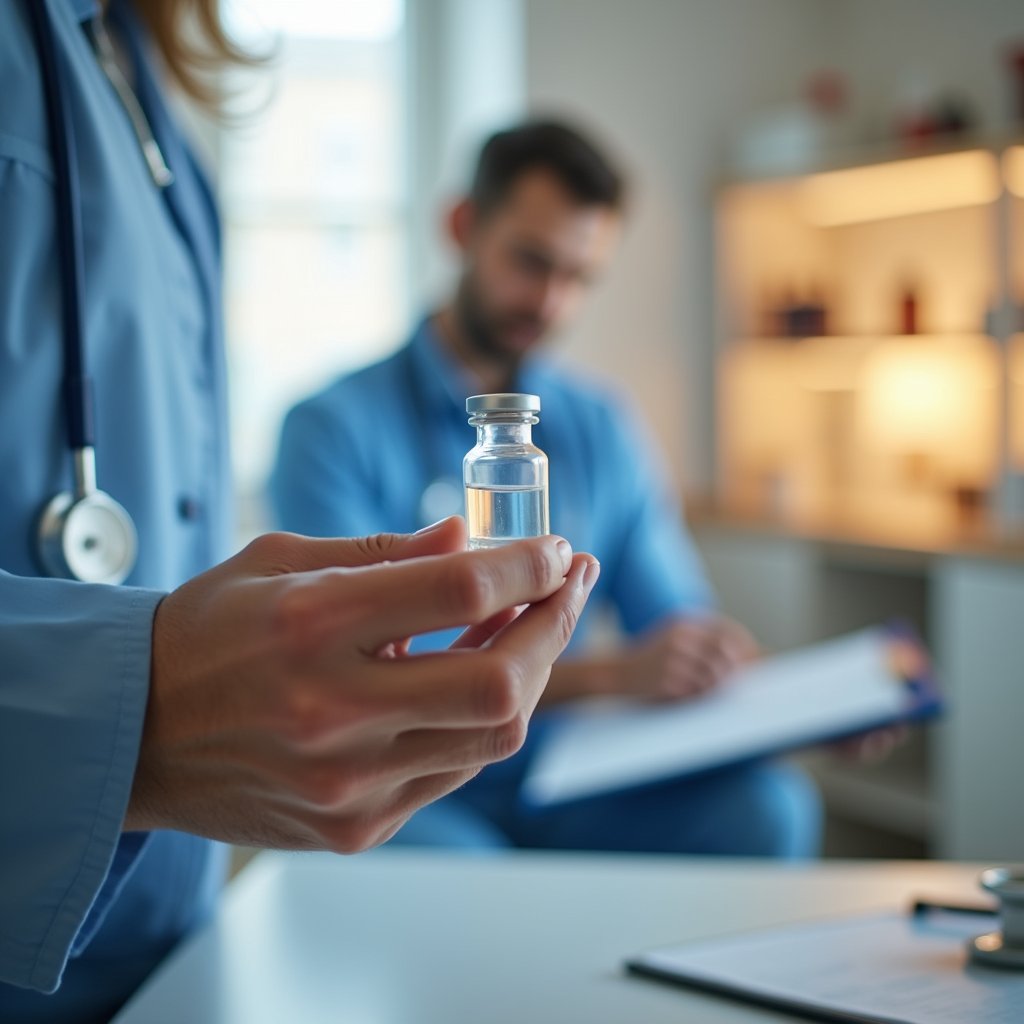Depression greatly impacts your physical health beyond emotional symptoms. It can disrupt your sleep patterns, weaken your immune system, and increase your risk of cardiovascular problems. You’ll likely experience changes in appetite, weight fluctuations, and digestive issues. Depression also alters brain structure, affecting memory and cognitive function. Physical symptoms often include muscle tension, chronic pain, and persistent fatigue. Understanding these connections can help you recognize depression’s full scope of effects on your body.
Key Takeaways
- Depression disrupts sleep patterns, leading to insomnia or excessive sleeping, which weakens immune function and impairs physical recovery.
- People with depression have double the risk of heart disease due to increased inflammation and stress hormones.
- Depression alters appetite and metabolism, causing significant weight changes through overeating or loss of interest in food.
- The condition weakens immune response and disrupts digestive health, making individuals more susceptible to illness and digestive problems.
- Depression physically changes brain structure, reducing gray matter volume and affecting memory, decision-making, and cognitive function.
The Sleep-Depression Connection

While many view depression primarily as a mental health condition, its profound impact on sleep patterns can trigger a cascade of physical health problems. When you’re depressed, your sleep quality typically deteriorates, leading to either excessive sleeping or persistent insomnia. These disruptions affect your body’s natural circadian rhythm, compromising your immune system and metabolic functions.
The insomnia effects associated with depression can be particularly damaging to your physical well-being. You’ll likely experience decreased cognitive performance, weakened muscle recovery, and hormonal imbalances. Your body’s ability to regulate stress hormones becomes impaired, making you more susceptible to inflammation and chronic health conditions. Furthermore, poor sleep interferes with your body’s natural healing processes, potentially prolonging recovery from illnesses and injuries.
Impact on Cardiovascular Health

Depression considerably increases your risk of developing cardiovascular problems through multiple physiological pathways. When you’re depressed, your body experiences heightened inflammation and raised stress hormones, which can damage your blood vessels and heart muscle over time. These physiological changes may lead to increased blood pressure and irregular heart rhythms.
Research shows that individuals with depression face up to twice the risk of heart disease compared to those without depression. You’re also more likely to develop unhealthy habits like smoking, physical inactivity, and poor dietary choices when depressed, further compromising your cardiovascular health. Moreover, depression can interfere with your ability to follow through with heart medications and treatment plans, potentially worsening existing heart conditions. Early intervention for depression becomes vital in protecting your long-term cardiovascular well-being.
Changes in Appetite and Weight

Living with depression often triggers significant fluctuations in your appetite and eating patterns, which can result in substantial weight changes. You might experience either increased cravings for carbohydrate rich comfort foods or a complete loss of interest in eating. These appetite fluctuations can lead to rapid weight gain or concerning weight loss.
Your brain’s altered chemistry during depression affects the hypothalamus, which regulates hunger signals and metabolism. When you’re depressed, you’ll notice disruptions in your regular eating schedule, portion control, and food choices. Some people cope with emotional distress through overeating, while others find food unappealing and skip meals. These weight changes can further complicate your health, potentially leading to nutritional deficiencies or obesity-related problems. It’s essential to monitor these changes and discuss them with your healthcare provider.
Chronic Pain and Depression
Physical discomfort and emotional distress often create a challenging cycle in your body. When you’re depressed, you’re more likely to experience persistent aches, joint stiffness, and heightened sensitivity to pain. Your brain’s pain receptors become more active during depressive episodes, making normal sensations feel more intense.
Studies show that chronic pain management becomes more difficult when you’re dealing with depression. You’ll notice that your pain threshold decreases, and activities that weren’t previously uncomfortable may start causing discomfort. This creates a frustrating loop: pain worsens your depression, and depression amplifies your pain perception.
Effective emotional coping strategies are essential for breaking this cycle. Your healthcare provider may recommend a combined treatment approach, addressing both your physical symptoms and psychological well-being through medication, therapy, and lifestyle modifications.
Weakened Immune System Response
When your mental health declines, your body’s natural defense mechanisms begin to falter. Clinical studies show that depression triggers heightened stress response, leading to immune deficiencies that make you more susceptible to illness. Your body produces excess cortisol, which suppresses immune system function and increases inflammation.
| Effect | Impact | Duration |
|---|---|---|
| Heightened Cortisol | Reduced White Blood Cells | Chronic |
| Inflammation | Compromised Barrier Function | Ongoing |
| Stress Response | Delayed Healing | Variable |
Research indicates you’re more likely to contract viral infections, develop autoimmune conditions, and experience slower wound healing when dealing with depression. Your body’s ability to fight common infections decreases considerably, making you vulnerable to everything from common colds to more serious illnesses. This compromised immune function often creates a cycle where physical illness can worsen depressive symptoms.
Digestive System Disruptions
Depression’s impact extends beyond immune function to considerably alter your digestive processes. When you’re experiencing depression, your gut health suffers as stress hormones interfere with normal digestive functions. You’ll often notice changes in appetite, either eating too much or too little, which can lead to weight fluctuations and nutritional deficiencies.
Research shows a strong connection between mental wellness and digestive health through the gut-brain axis. You might experience symptoms like nausea, bloating, or irregular bowel movements during depressive episodes. The altered levels of neurotransmitters in your brain affect the nerves controlling your digestive system, leading to inflammation and decreased gut motility. Furthermore, depression can trigger unhealthy eating patterns and food choices, further compromising your digestive function and general gastrointestinal health.
Hormonal Imbalances and Depression
Although the relationship between depression and hormones is complex, research consistently shows that hormonal imbalances can both trigger and worsen depressive symptoms. When you’re depressed, your body’s endocrine system can become disrupted, affecting vital hormones like cortisol, thyroid hormones, and serotonin.
These hormonal fluctuations impact your body’s natural mood regulation processes, creating a challenging cycle where depression affects your hormones, and altered hormone levels intensify your depression. You’ll often notice changes in your stress response, sleep patterns, and energy levels as a result. Your thyroid may become less active, slowing your metabolism and contributing to fatigue. Furthermore, increased cortisol levels can affect your immune system, making you more susceptible to illness and potentially prolonging your recovery from depression.
Energy Levels and Physical Fatigue
Living with depression often manifests in profound physical exhaustion that extends beyond typical tiredness. You’ll notice significant changes in your energy patterns, making even simple tasks feel overwhelming. Your body’s natural energy management strategies become disrupted, leading to persistent fatigue.
| Symptom | Impact |
|---|---|
| Morning lethargy | Difficulty starting daily activities |
| Muscle weakness | Reduced physical capabilities |
| Mental fog | Decreased concentration and focus |
| Sleep disruption | Irregular rest patterns |
| Energy crashes | Sudden exhaustion during tasks |
Despite feeling drained, incorporating physical activity benefits your general well-being. Research shows that gentle exercise can help regulate energy levels and reduce fatigue symptoms. Start with small movements and gradually increase activity as your strength builds. Keep in mind that fatigue from depression isn’t laziness it’s a legitimate physical symptom requiring professional support and understanding.
Muscle Tension and Body Aches
When depression affects your mental health, it simultaneously triggers physical responses throughout your body’s muscular system. You’ll often experience persistent muscle tension, particularly in your neck, shoulders, and back, leading to chronic pain and discomfort. This tension can result in headaches, stiffness, and reduced mobility.
Your body’s prolonged stress response during depression keeps your muscles in a constant state of readiness, causing them to remain tight and contracted. To manage these symptoms, you’ll benefit from incorporating muscle relaxation techniques into your daily routine, such as progressive muscle relaxation or gentle stretching exercises. Stress management strategies, including mindfulness meditation and regular physical activity, can help reduce muscle tension. If left unaddressed, chronic muscle tension may contribute to long-term musculoskeletal problems and intensify your depressive symptoms.
Brain Structure and Physical Changes
Research has shown that chronic depression directly alters your brain’s physical structure and neural pathways. Through neuroplasticity effects, your brain adapts to prolonged depressive states by reducing the size of key regions like the hippocampus and prefrontal cortex, which control memory and decision-making.
Your brain chemistry undergoes significant changes during depression, with decreased production of essential neurotransmitters like serotonin and norepinephrine. These alterations can lead to measurable shrinkage in gray matter volume and disrupted connections between different brain regions. You’ll experience impaired cognitive function, memory issues, and difficulty processing emotions as these physical changes progress. The good news is that many of these structural changes can be reversed with proper treatment, as your brain’s natural plasticity allows for healing and regeneration of affected neural circuits.
Frequently Asked Questions
Can Depression Affect Fertility and Reproductive Health?
Yes, depression can greatly impact your fertility and reproductive health. When you’re depressed, hormonal imbalances can disrupt your menstrual cycle and ovulation patterns. You’ll also experience changes in stress hormones like cortisol, which may interfere with conception. Depression might affect your sex drive and relationship dynamics, potentially reducing opportunities for conception. If you’re undergoing fertility treatments, depression can lower their success rates and complicate your treatment process.
Does Depression Impact Healing and Recovery From Surgery or Injuries?
When you’re depressed, your surgery outcomes and injury recovery can be greatly compromised. Depression slows wound healing by disrupting your immune system and increasing inflammation. You’ll likely experience longer hospital stays and more post-operative complications. Research shows that depression can delay physical rehabilitation progress and increase pain sensitivity. Furthermore, you’re less likely to follow through with prescribed physical therapy and recovery protocols, further impacting your healing timeline.
How Does Depression Influence Skin Health and Aging?
When you’re experiencing depression, your skin health and aging processes can be greatly affected. Emotional stress triggers increased cortisol production, which can break down collagen and elastin, accelerating skin aging. You’ll likely notice slower wound healing, more pronounced wrinkles, and decreased skin barrier function. Depression can also worsen existing skin conditions like acne, psoriasis, and eczema through stress-related inflammation and reduced self-care routines.
Can Depression Cause Vision or Hearing Problems?
Yes, depression can affect both your vision and hearing. You might experience visual disturbances like blurred or tunneled vision, difficulty focusing, or increased sensitivity to light. These symptoms often stem from depression’s impact on brain function and stress hormones. Likewise, you may notice auditory issues, including tinnitus (ringing in ears) or heightened sensitivity to sounds. While these sensory changes aren’t permanent, they can be distressing during depressive episodes.
Does Depression Affect Bone Density and Joint Health?
Yes, depression can greatly impact your bone density and joint health. When you’re depressed, your body produces higher levels of cortisol, a stress hormone that can interfere with bone formation and accelerate bone loss. You’re also more likely to be less physically active, which weakens both your bones and joints. Furthermore, some antidepressant medications may increase your risk of bone density loss, particularly in older adults.





